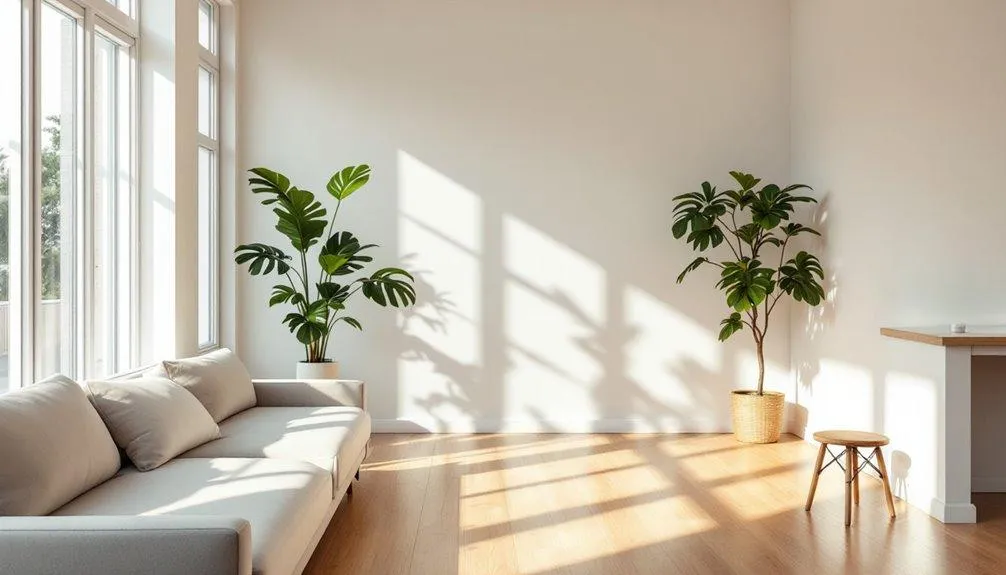
The Financial Upside of Downsizing: How Less Can Be More
The Financial Upside of Downsizing: How Less Can Be More
Have you ever considered how downsizing your living space could positively impact your finances? By choosing a smaller home, you can lower your mortgage payments, cut utility costs, and even reduce your property taxes. This shift not only eases your monthly budget but also encourages a lifestyle focused on essential possessions. As you simplify your life, you may find unexpected financial freedom awaiting you. What other benefits could emerge from embracing this minimalist approach?
Key Takeaways
Downsizing reduces mortgage payments or eliminates them, improving overall financial health.
Smaller homes incur lower maintenance costs and utility bills, leading to significant savings.
Decluttering allows for cash generation through selling unused items or donating, enhancing financial flexibility.
Minimalism fosters mindful purchasing and reduces impulsive spending, aligning expenses with true priorities.
Simplifying living spaces can lower property taxes, freeing up funds for savings or investments.
Understanding the Concept of Downsizing
When you think about downsizing, you might envision a drastic change, but it’s really about making strategic decisions that enhance your financial well-being.
Downsizing means reducing the size of your living space, often leading to a simpler lifestyle. It’s not just about moving to a smaller home; it’s a chance to reassess your needs and priorities. You can evaluate what you truly value—perhaps more time for hobbies or travel, rather than maintaining a large property.
This shift can foster a sense of community, as smaller homes often lead to closer connections with neighbors. Additionally, it encourages you to declutter and focus on what truly matters, making your living environment more enjoyable and manageable.
Financial Benefits of a Smaller Home
Opting for a smaller home can considerably impact your financial landscape in a positive way. When you downsize, you often lower your mortgage payments or, in some cases, eliminate them entirely, allowing you to redirect funds toward savings or investments.
Smaller homes usually require less maintenance, meaning lower repair and upkeep costs, which can also boost your savings over time. Additionally, utility bills tend to decrease in a smaller space, providing further financial relief.
Reducing Monthly Expenses
As you consider downsizing your living space, you’ll likely find that reducing your monthly expenses becomes one of the most immediate benefits.
Smaller homes typically come with lower utility bills, property taxes, and maintenance costs. For instance, heating and cooling a compact space requires less energy, leading to noticeable savings on your monthly utility statements.
Additionally, if you’re moving into a community with shared amenities, such as a pool or fitness center, you can eliminate the costs associated with maintaining those facilities yourself.
By reevaluating your living situation, you can also free up funds for other priorities, like travel or savings.
Ultimately, embracing a smaller space not only simplifies your life but also enhances your financial flexibility.
Simplifying Possessions for Savings
While many people view their possessions as a reflection of their identity, simplifying what you own can lead to significant financial savings.
By decluttering your space, you not only reduce maintenance costs but also lower utility bills associated with larger homes filled with unnecessary items.
Decluttering your space lowers maintenance costs and utility bills, making it a practical move for your finances.
Consider selling or donating items you no longer use; this can generate extra cash while freeing up space.
Additionally, fewer possessions mean reduced insurance costs, as you’ll need less coverage.
Streamlining your belongings encourages mindful purchasing, helping you avoid impulsive buys.
Ultimately, when you prioritize quality over quantity, you invest in more meaningful items that truly enhance your life.
Simplifying isn’t just about space; it’s a smart financial strategy that can improve your overall well-being.
Enhancing Financial Freedom Through Minimalism
Embracing minimalism can considerably enhance your financial freedom, especially when you consider how it impacts your spending habits and overall lifestyle.
By prioritizing experiences over possessions, you’ll find yourself less tempted to make impulsive purchases. This shift not only reduces clutter but also frees up cash that can be redirected toward savings or investments.
When you live with less, you often discover that your needs become simpler, fostering a mindset focused on value rather than volume. You might also find that downsizing your living space lowers expenses, from rent or mortgage payments to utility bills.
Ultimately, minimalism encourages you to cultivate a life where financial choices reflect your true priorities, paving the way for greater financial security and freedom.
Bottom Line
In summary, downsizing offers a practical path to financial well-being by reducing expenses and promoting a simpler lifestyle. As you embrace a smaller home, you’re not just cutting costs; you’re also creating space for what truly matters. This shift can lead to greater financial freedom, allowing you to redirect savings towards experiences or investments that enrich your life. Ultimately, choosing less can indeed mean gaining more, fostering both financial stability and a fulfilling way of living.

